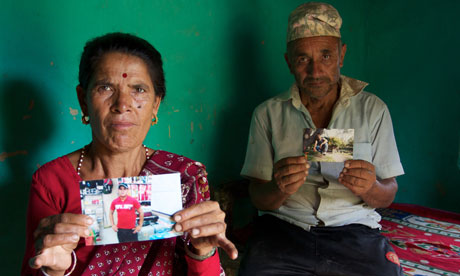By: Danielle L. Gwozdz
Impunity Watch News Reporter, Africa
ABUJA, Nigeria – Roughly 50 students were killed as suspected Islamist gunmen attacked a college in north-eastern Nigeria.

The students were shot dead while they were asleep in their dormitories at the College of Agriculture in Yobe state. The gunmen also torched the college’s classrooms.
The attack is blamed on the Boko Haram extremist group, even though there has been a four and a half month old state of emergency covering three states and one-sixth of the country.
“They attacked our students while they were sleeping in their hostels, they opened fire at them,” Provost Molima Idi Mato of Yobe State College of Agriculture said.
Mato further said he could not give an exact number for death toll because security forces are still recovering bodies of students mostly aged between 18 and 22. The Nigerian military has collected 42 bodies and transferred 18 wounded students to a local hospital.
In addition, Mato reported that about 1,000 students had fled the scene.
Most of those killed were Muslims, as is the majority of the college’s student body.
The college is roughly 25 miles from another school that suffered from a similar attack around Damaturu town. There are no security forces stationed at the college despite the attacks.
Two weeks ago, state commission for education Mohammed Lamin urged all schools to reopen and promising protection by soldiers and police.
In June, Boko Haram carried our two attacks on schools in the region. At least nine children were killed in a school on the outskirts of Maiduguri, while 13 students and teachers were killed in a school in Damaturu.
In July in the village of Mamudo in Yobe state, Islamist militants attacked a school’s dormitories with guns and explosives, killing at least 42 people, mostly students.
Boko Haram regards schools as a symbol of Western culture. The group’s name translates as “Western education is forbidden.”
Some of Boko Haram’s fighters have trained with al-Shabab in Somalia.
Boko Haram leader Abubakar Shekau has said in video addresses that his group wants to end democracy in Nigeria and allow education only in Islamic schools.
Its uprising poses the biggest security challenge in years to Nigeria which is Africa’s biggest oil producer and its most populous nation with more than 160 million people – almost equal numbers of which are Muslims and Christians.
Boko Haram militants have killed more than 1,700 people since 2010.
For more information, please visit:
BBC News – Nigeria attack: Students shot dead as they slept – 29 September 2013
Scottish Express – Gunmen massacre Nigeria students – 29 September 2013
Kuwait Times – Militants storm Nigeria college, kill 50 students – 29 September 2013
Yahoo! News – Nigeria College Attacked: At Least 40 Killed – 29 September 2013
Sky News – Nigeria College Attacked: At Least 40 Killed – 29 September 2013
The Globe and Mail – Boko Haram blamed after attack on Nigerian college leaves as many as 50 dead – 29 September 2013

